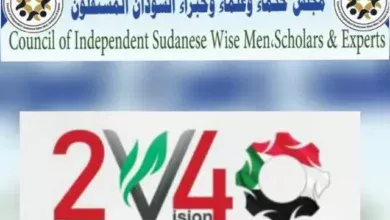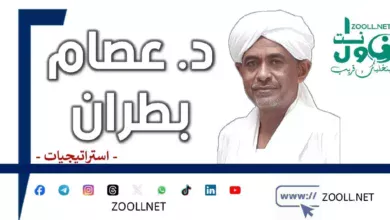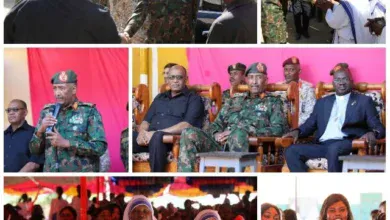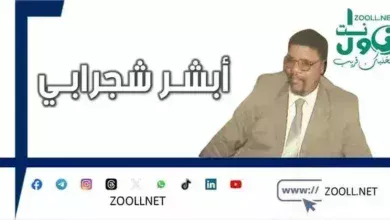Participation of the popular resistance in the Swiss negotiations – The face of truth – ✍️ Ibrahim Shaqlawi
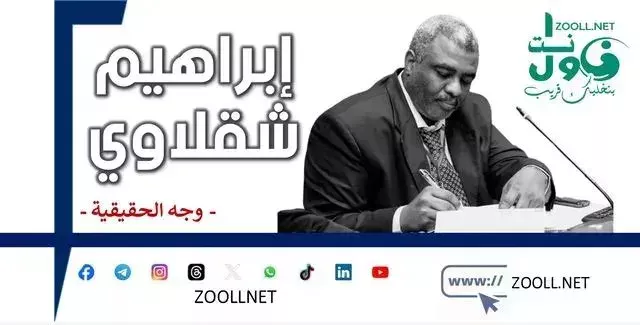
As the days go by, we are getting closer to the date announced by international mediators for negotiations to take place between the Sudanese government, represented by the Sudanese Armed Forces, and the rebels of the Rapid Support Forces, at the Swiss tribune on August 14. .to stop the war in Sudan…; And for the Sudanese government to announce a clear position on accepting or rejecting the invitation… This opens the door wide to speculation, political readings and questions about the possibility of success of these negotiations, which everyone was waiting for to end the suffering of the Sudanese from a war that is about to enter its third year and which began with a failed coup d'état supported by Some political forces are independent Rifle Support Forces.
Everyone is now ready to announce that the government has accepted the invitation to negotiate…! And among those who refuse..! Especially after the Sudanese Ministry of Foreign Affairs announced the day before yesterday through its agent that it had received the invitation to discussions from the American State Department and that it was currently studying it and would respond to it in form and substance. These brief sentences that Mr. Undersecretary indicated that the message received could pose a problem provided that the State Department responds to it in form and substance.
On the other hand, some observers believe that the government's delay in responding is related to the clarifications and guarantees expected from the director of the US Agency for International Development (Samantha Power) and the US special envoy to Sudan (Tom Perillo). , who will travel to Sudan in early August, as announced… since the call for these negotiations, it seems that there are many comments on this subject, despite previous conversations reported in the media. They confirmed that there was coordination and collaboration. meetings between all parties that preceded the announcement of these negotiations.
Therefore, all possibilities remain on the side of the Sudanese government.
The first is: refusing to participate in the Swiss negotiations and adhering to the Jeddah platform without the presence of observers, which is an indication of the rejection of the presence of the United Arab Emirates among the observers mentioned in the speech of the US State Department.
Second: Approval of the condition for the implementation of the Jeddah Agreement regarding the departure of rebel forces from civilian property and citizens' homes and their assembly in camps outside the cities after handing over their weapons.
Third: The approval of sufficient guarantees will be announced through the expected clarifications from the Sudanese Ministry of Foreign Affairs.
On the other hand, there is a discourse that is beginning to appear in the local news, and it was initiated by the influential journalist Adel Al-Baz, according to which the army needs support in the negotiations to confirm that the potential negotiation expresses all the Sudanese people… similar to what is happening now in terms of support in the field of military operations, in reference to… The army is not fighting the rebellion alone. It is therefore logical that the negotiating delegation includes a mixture of the government, the army and the popular resistance that is fighting alongside it because it has become a stakeholder. It could be said that this is drowning, but it will reduce the pressure on the army to reach satisfactory solutions and conclude any agreement resulting from these negotiations. can be accepted and convinced. This experience has already been used in the negotiations of the Popular Movement in South Sudan during the John Garang rebellion and in the Doha negotiations with the armed movements, involving the stakeholders, during which time this mandate appeared in the Sudanese political vocabulary… Even at the regional level, there are experiences in Ethiopia and South Africa… and in other countries.
There is also an important signal that we must consider: when the army accepted the invitation to the Conference of Political Parties and Entities in Cairo…; The Sudanese Ministry of Foreign Affairs issued a statement stating that any conference to discuss stopping the war must have the popular resistance represented, or an expression close to this meaning. Therefore, this idea remains good, it only needs implementation mechanisms that name this name. representatives of the popular resistance, and I think the issue is not difficult… if you accept it. The leadership of the army. As long as the popular resistance has a law and structures at the state level.. This happens, in my opinion. , to relieve the army of embarrassment if an agreement is reached to stop the war and move on to the next day. This certainly does not take anything away from the army, which enjoys great confidence and consensus. My popularity is undisputed.
Some suggest instead raising the ceiling for participation to the level of the Chairman of the Sovereignty Council and Commander of the Army Abdel Fattah Al-Burhan… This is in line with what the African Union announced earlier, that it is seeking to persuade Al-Burhan. -Burhan and Mohamed Hamdan Dagalo will meet… because this will significantly shorten the path to a solution, and IGAD has already announced this meeting, but the rebel leader apologized on the pretext that there were technical reasons for delaying the meeting. meeting.. Now, the technical reasons may have disappeared and the demand for this meeting has resurfaced..; Because the participation of the rebel leader, Mohamed Hamdan (Hemedti), will make the negotiation easy and easy, and if Hamdan does not come, and this is expected, the battle will be over and it will be easy to move on to what comes after. the war, which puts the international community in front of its responsibilities towards Sudan and its people. So it remains important for Al-Burhan to go to Switzerland, and before that, he addresses the Sudanese people to confirm that he himself will achieve peace, and that the government is conducting open-hearted negotiations, with the army holding a rifle in one hand and an olive branch in the other. This announcement will be fully accepted by the Sudanese people, who have confidence in his leadership. On the other hand, it will lead to a state of great confusion among the other parties… and perhaps the evidence will begin to use the first real pressure card, because it is war.
With this measure, it appears to everyone that the Sudanese army is striving to achieve a peaceful solution to the internal conflicts, to end the war and establish a just peace for its people. After that, it will become easy to move towards political arrangements that take this into account. take into account what was agreed at the Cairo Conference of Political and Civil Forces and the Addis Ababa Conference of Political Forces, sponsored by the African Union. If President Al-Burhan succeeds in this, he will have opened a new door to peace and stability in Sudan… and in the region. Therefore, it remains necessary to follow with anticipation the developments in the political and military scene in the country. country…; The question remains whether it is wise to use political cards at this stage… to achieve peace and security.
May you always be healthy


